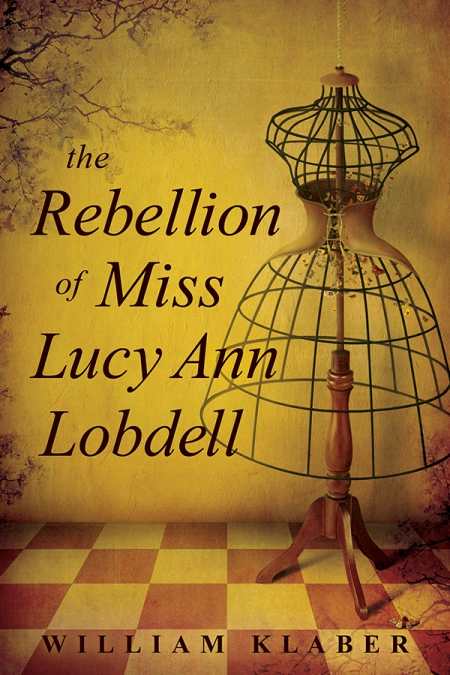The Rebellion of Miss Lucy Ann Lobdell
- 2013 INDIES Winner
- Gold, Gay & Lesbian (Adult Fiction)
What Klaber does so well throughout is keep front and center the hinge upon which this story swings: Lobdell’s ambiguity about her gendered and sexual self.
Only the train was late the day Lucy Ann Lobdell left home in order to live life on her own terms. That decision, her “rebellion,” meant living as a man, thereby delivering her a fate she never could have imagined, and doing so approximately 150 years ahead of her time. In The Rebellion of Miss Lucy Ann Lobdell, author and part-time journalist William Klaber chronicles Lucy’s story as an “as-if” memoir, piecing together newspaper articles, letters, and an account she’d written about her early years, and then interspersing imagined dialogue and interactions to create a first-person narrative in Lucy’s voice.
A few pages into the novel, it’s no longer Lucy telling her story but Joseph Israel Lobdell—her preferred persona—telling his. It’s the 1850s, a time when women wore dresses and acted like ladies. When an arranged marriage to a man of ill repute trumped spinsterhood. When the notion of gender and sexual identity hadn’t yet made it in from the cold, much less come close to occupying our nation’s collective closet … or consciousness.
Initially, Lobdell’s rebellion arose from purely economic reasons: she could earn more disguised as a man than working as a woman. But unexpectedly a young woman falls in love with Joseph, and he falls in love with her. What could be wrong with me, Joseph asks himself, that I could fall in love with another woman?
No vocabulary yet existed for Lobdell to answer that question—a reality that amps up the novel’s tension. What Klaber does so well throughout is keep front and center the hinge upon which this story swings: Lobdell’s ambiguity about, and eventual acceptance of, her gendered and sexual self. “I was trapped,” Lobdell says. “I could be no man’s wife. I could be no woman’s husband.”
Lucy “transitions” to becoming Joseph by binding her breasts and wearing men’s clothing. He laughs at bawdy jokes Lucy never would’ve found funny. He “fake-shaves” to give the appearance of having facial hair, plays the violin, and earns a decent living wage by teaching dance—not a typical occupation, but anything goes in a town hungry for commerce.
The ruse works on many levels, but not so much in keeping straight who’s saying what, since there is no appreciable difference between Lucy’s and Joseph’s communication styles. Speech patterns, rhythms, language, and grammar are nearly identical. Thus, at times it’s easy to visualize Joseph speaking while hearing Lucy, and vice-versa.
For living life on his own terms, Lobdell endured public vilification, physical assault and rape, jail, and imprisonment in an insane asylum. When Joseph realizes the magnitude of his decision, when the duplicity of his life closes in around him, he says: “So there it was. I could not write the truth, nor could I send a lie. I was alone—like Jonah, swallowed whole and spat up on a foreign shore.”
The cover art rendered for Klaber’s engaging work—an abandoned dress form—might be misconstrued as something representative of the fashion industry. Curiously, historical references are largely absent throughout, even though some women’s rights conventions took place practically in Lobdell’s back yard. But with recent legal decisions surrounding gender-identity issues, The Rebellion of Miss Lucy Lobdell should be popular on reading lists everywhere.
Reviewed by
Chris Henning
Disclosure: This article is not an endorsement, but a review. The publisher of this book provided free copies of the book and paid a small fee to have their book reviewed by a professional reviewer. Foreword Reviews and Clarion Reviews make no guarantee that the publisher will receive a positive review. Foreword Magazine, Inc. is disclosing this in accordance with the Federal Trade Commission’s 16 CFR, Part 255.

